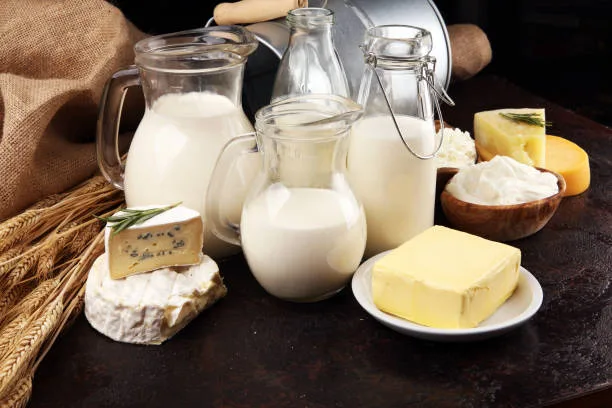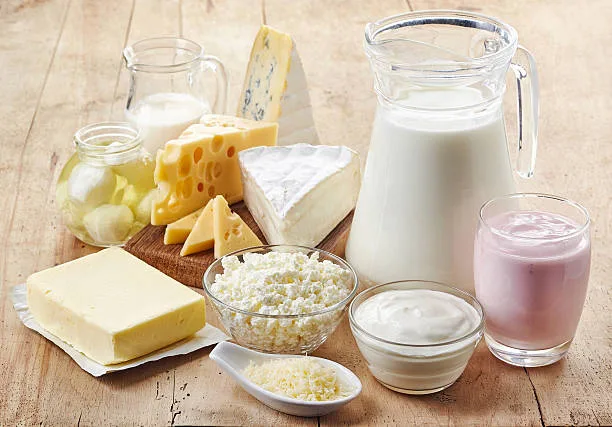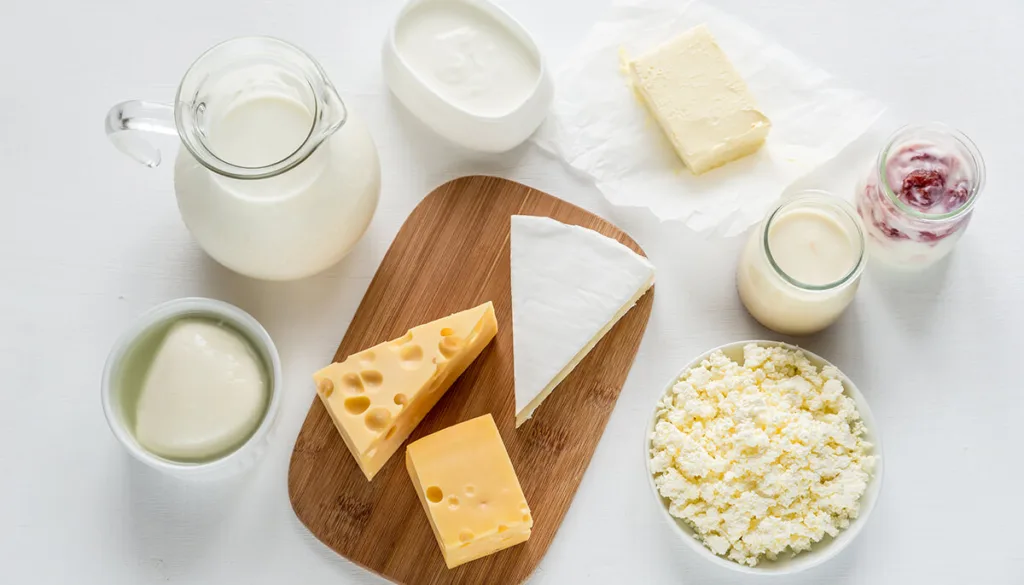Dairy products like milk, cheese, and yogurt are staples in many people’s diets. But when it comes to weight loss, the role of dairy becomes less clear. Some studies suggest that dairy can help with fat loss, while others imply the opposite. So what’s the real deal? Can dairy support weight loss efforts or should it be avoided when trying to shed pounds? This article will examine the nuanced relationship between dairy and weight loss. Let’s unravel this complex topic!

The Role of Dairy in Our Diets
Dairy foods like milk, cheese, and yogurt have long been considered important parts of a balanced diet. Milk and dairy provide key nutrients like calcium, protein, vitamins D and B12. These nutrients are essential for bone health, muscle function, immunity and more. Dairy products are ubiquitous in the Western diet. An estimated 90% of Americans regularly consume dairy foods.
For decades, dietary guidelines have recommended 2-3 servings of dairy per day. But dairy’s role has come into question in recent years. With rising rates of obesity, many people now pin the blame on dairy. But is dairy truly the villain when it comes to weight gain? The relationship is complex and the research is mixed. Let’s dive deeper.
The Weight Loss Dilemma
Many who want to lose weight remove dairy products from their diets in hopes of quick results. But does avoiding dairy really lead to more weight loss? The evidence is contradictory. Some studies show that dairy consumption is linked with less weight gain over time. However, others suggest high-dairy diets promote fat gain. Much depends on the types and amounts of dairy foods consumed.
Clearly the connection between dairy and weight is multifaceted. To make sense of it all, we need an in-depth look at the nutritional value of dairy, the research on dairy and weight, and how to healthfully incorporate dairy products into a weight loss plan. This article will provide that perspective.
The Need for Clarity
With so much conflicting information, it’s natural for confusion to arise regarding dairy’s role in weight management. But solid insights can emerge when we examine the intricacies. The relationship between dairy and weight loss is complex, but a balanced perspective is possible. By reviewing key nutrition facts, research findings and practical tips, we can gain clarity. Let’s explore further!

The Nutritional Value of Dairy
To understand how dairy may or may not contribute to weight loss, we first need to look at its nutritional profile. What exactly is in the dairy foods we consume?
Key Nutrients in Dairy Products
Milk, cheese, yogurt and other dairy products contain a range of key nutrients. Here are some of the top ones:
Calcium
Dairy products are rich sources of calcium. Just one cup of milk delivers 286-352mg calcium, while a 1.5 oz slice of cheese provides around 200mg. Calcium is essential for healthy bones and teeth. But it may also aid fat burning. Research indicates that dietary calcium can help reduce fat accumulation and accelerate fat metabolism.
Protein
Dairy foods provide high-quality complete proteins with all essential amino acids. One cup of milk has 8g protein and one 6oz yogurt packs 15-20g. Dietary protein promotes satiety, preserves or builds lean muscle mass and boosts calorie burn. These effects support potential weight loss.
Vitamins D and B12
These two vitamins are naturally present in dairy foods. Vitamin D promotes calcium absorption for bone health. Vitamin B12 is vital for energy production and red blood cell formation. Together, these vitamins may support a healthy metabolism.
Understanding Calories in Dairy
Dairy products do contain varying amounts of calories, fat, sugar and carbs. Here’s a quick look:
- Whole milk has 149 calories in one cup, from 8g fat, 12g carbs, 8g protein.
- 2% milk has 122 calories, 5g fat, 12g carbs, 8g protein.
- Cheese is high in fat and calories – one ounce of cheddar delivers 114 calories and 9g fat.
- Greek yogurt packs 100 calories and 6g protein per 5.3oz. It has less sugar than regular yogurt.
- Frozen yogurt contains 100-200 calories and 2-6g fat per 1/2 cup. It also provides calcium, vitamin D and probiotics.
So when consumed in moderation and as part of healthy diet, dairy products can provide important nutrients for not excessive amounts of calories. But eating large portions may tip the scales for weight gain rather than loss.

Dairy and Weight Loss Studies
Next let’s examine what controlled studies suggest about dairy and weight management. But first, a caveat: Different types of dairy foods, different fat contents, and different amounts consumed make for mixed results. Often the devil is in the details.
Examining Research Findings
Scientific studies investigating direct connections between dairy consumption and weight loss (or gain) have had inconsistent findings:
Positive Associations
- A 2021 review of 38 studies found that most demonstrated a beneficial effect of increased dairy intake on body weight and fat loss over time. Higher dairy consumption was associated with less weight gain.
- A large Danish study showed that when 5-10% of calories came from dairy products, participants were less likely to become overweight over 12 years. Yogurt intake was linked with the lowest risk for weight gain.
- Eating up to 4 servings daily of low-fat dairy foods modestly increased weight loss in a 2013 study of obese adults following calorie-restricted diets.
Contradictory Studies
- A 2016 review reported mixed results – some studies linked dairy intake with reduced adiposity (body fat), while others showed weight gain or no effect from dairy consumption.
- A small 2004 study saw no significant difference in weight loss for obese individuals consuming low-dairy vs high dairy diets over 1 year.
Negative Associations
- Australian researchers found a positive association between higher intake of total dairy, milk and cheese and long-term weight gain in older adults tracked over 15 years.
- Women enrolled in the Nurses’ Health Study had an increased risk for obesity with higher cumulative dairy consumption over time.
Factors That Influence Outcomes
With such contradictory findings, can we draw any reliable conclusions? Well, a closer look reveals key details that impact the results:
Types of Dairy Products
- Some studies implicate only certain dairy products like milk or cheese with weight gain, while finding yogurt consumption neutral or beneficial for weight control.
- Higher fat vs lower fat dairy products appear to produce different effects. Whole milk may promote more weight gain than skim or low-fat milk, for example.
Portion Sizes
- Eating 3-4 servings of dairy daily tends to show neutral or positive effects for weight loss, while consuming excessive amounts is linked with weight gain. Moderation seems key.
Individual Variations
- Factors like a person’s age, gender, lifestyle, genetics and microbiome may alter how dairy consumption impacts weight.
The relationship between dairy intake and weight is certainly intricate! Next we’ll explore popular dairy alternatives that are lower in calories.

Dairy Alternatives
With the popularity of plant-based diets, non-dairy alternatives to regular milk and cheese abound. Here’s a quick look at nutrition stats for some key substitutes:
Plant-Based Milk Options
Going with non-dairy alternatives significantly reduces calories and fat.
Nut Milks
- Almond milk has just 39 calories in one cup, no fat, 2.5g protein
- Coconut milk contains 74 calories per cup, 5g fat, 0g protein
Soy Milk
- One cup of soy milk delivers 105 calories, 4g fat, 7g protein
Oat Milk
- Oat milk supplies 120 calories, 5g fat, 3g protein per cup
Non-Dairy Cheese and Yogurt
- Dairy-free cheese and yogurt alternatives are made from nuts, soy, coconut and more.
- Nutrition content varies by brand (calories, fat, carbs, protein).
- May be fortified with calcium and vitamins D and B12.
- Probiotic cultures added to some non-dairy yogurts.
Going the non-dairy route provides an effective means to greatly reduce calorie and saturated fat intake compared to regular dairy products. Just be mindful of added sugars in some plant-based options.
Practical Tips for Incorporating Dairy into a Weight Loss Plan
The key with any food in a weight loss diet is moderation and balance. Here are some practical, real-world tips for healthfully enjoying dairy products as part of a reduced calorie eating plan:
Balancing Dairy in Your Diet
- Consume 2 to 3 servings of dairy foods per day at most for weight loss.
- Measure portion sizes carefully. Start with 1/2 cup servings of dairy products.
- Limit higher fat cheeses and whole milk. Opt for low-fat versions.
- Try substituting a dairy serving with lower calorie dairy alternatives periodically.
- Pair dairy with high fiber foods like fruit or oatmeal which helps control blood sugar and hunger.
Smart Snacking with Dairy
- Enjoy a non-fat Greek yogurt parfait layered with fresh berries instead of less nutrient-dense snacks.
- Spread 2 tablespoons hummus on celery sticks rather than higher fat cheese slices.
- Bake kale chips drizzled with 1 tablespoon Parmesan instead of eating full-fat cheese cubes.
Cooking with Dairy
- Use plain non-fat Greek yogurt instead of sour cream to top baked potatoes, chili or tacos. Saves calories, fat and adds protein.
- Make oatmeal, smoothies or sauces creamy by blending in low-fat cottage cheese. Adds protein too.
- Melt a sprinkle of Parmesan or feta over lean proteins like chicken, fish or veggies to add big flavor for few calories.
Conclusion
Clearly the relationship between dairy and weight loss is complicated. But a few overarching insights emerge:
The Complexity of Dairy and Weight Loss
- Research on direct links between dairy consumption and weight loss or gain is mixed and inconclusive.
- Different types of dairy foods appear to exert varying effects based on their fat and calorie content.
- Consuming dairy in moderation, in low-fat forms, and with balanced diet and exercise habits promotes the most favorable weight outcomes.
Making Informed Choices
- Enjoy dairy products for their nutrient benefits but be mindful of total calorie intake.
- Limit higher fat sources like cheese and whole milk if watching your weight.
- Alternate in non-dairy substitutes to control calories, fat and variety.
A Balanced Approach to Health
- Dairy foods can be part of a healthy, balanced diet that supports weight loss when consumed in moderation and paired with fruits, vegetables and lean proteins.
- Focus on overall calorie control plus active lifestyle to reach and maintain ideal body weight over time.
- Make informed nutrition choices based on variety, moderation and balance rather than eliminating whole food groups.
Thank you for reading our in-depth exploration of the relationship between dairy and weight loss. Stay informed about nutrition, health, and wellness by subscribing to our free newsletter. Don’t forget to check out our other articles on topics related to food, nutrition, health, wellness, and weight loss for more valuable insights.
Thank you for reading this post, don't forget to subscribe to our free newsletter
!
